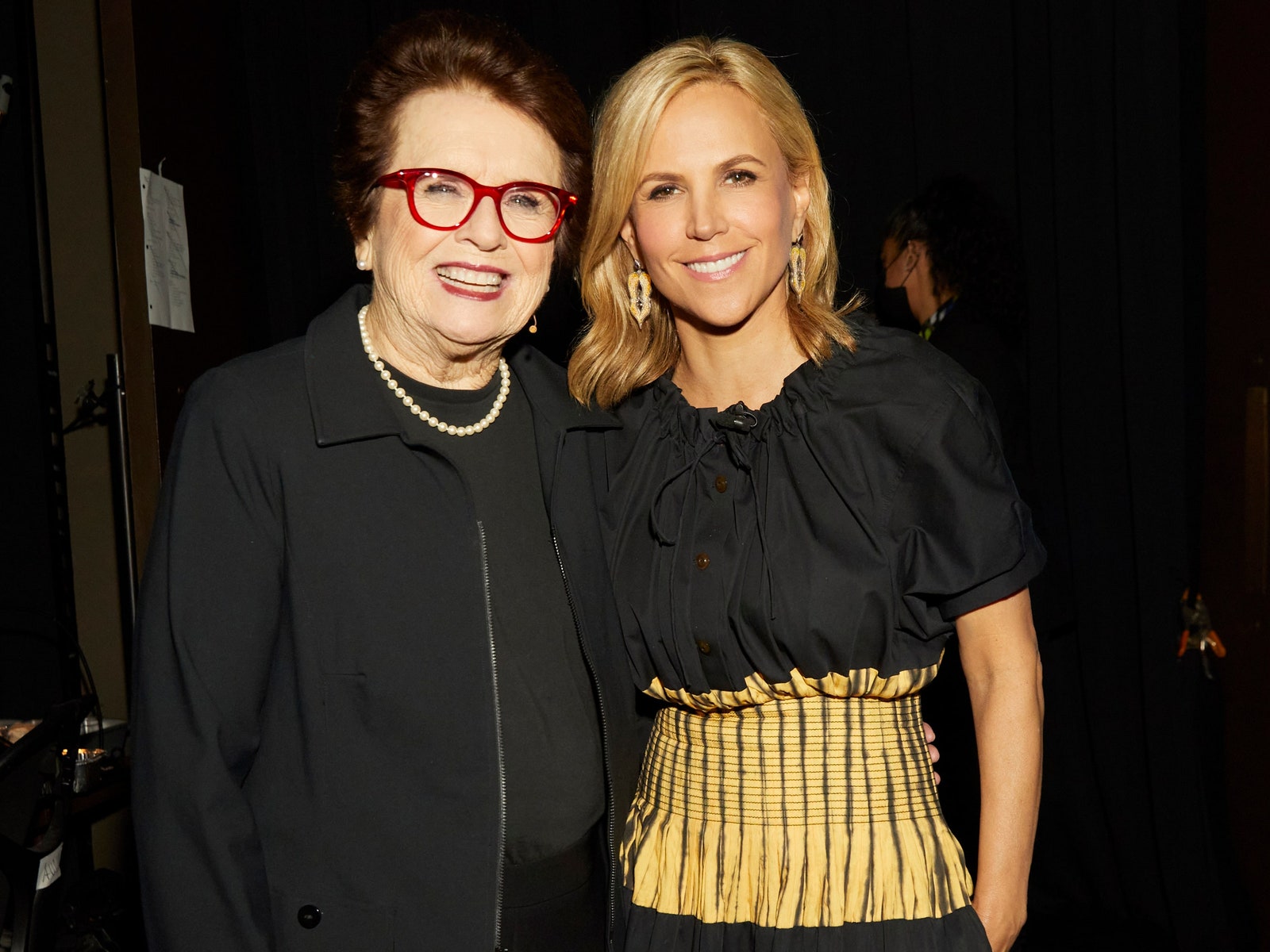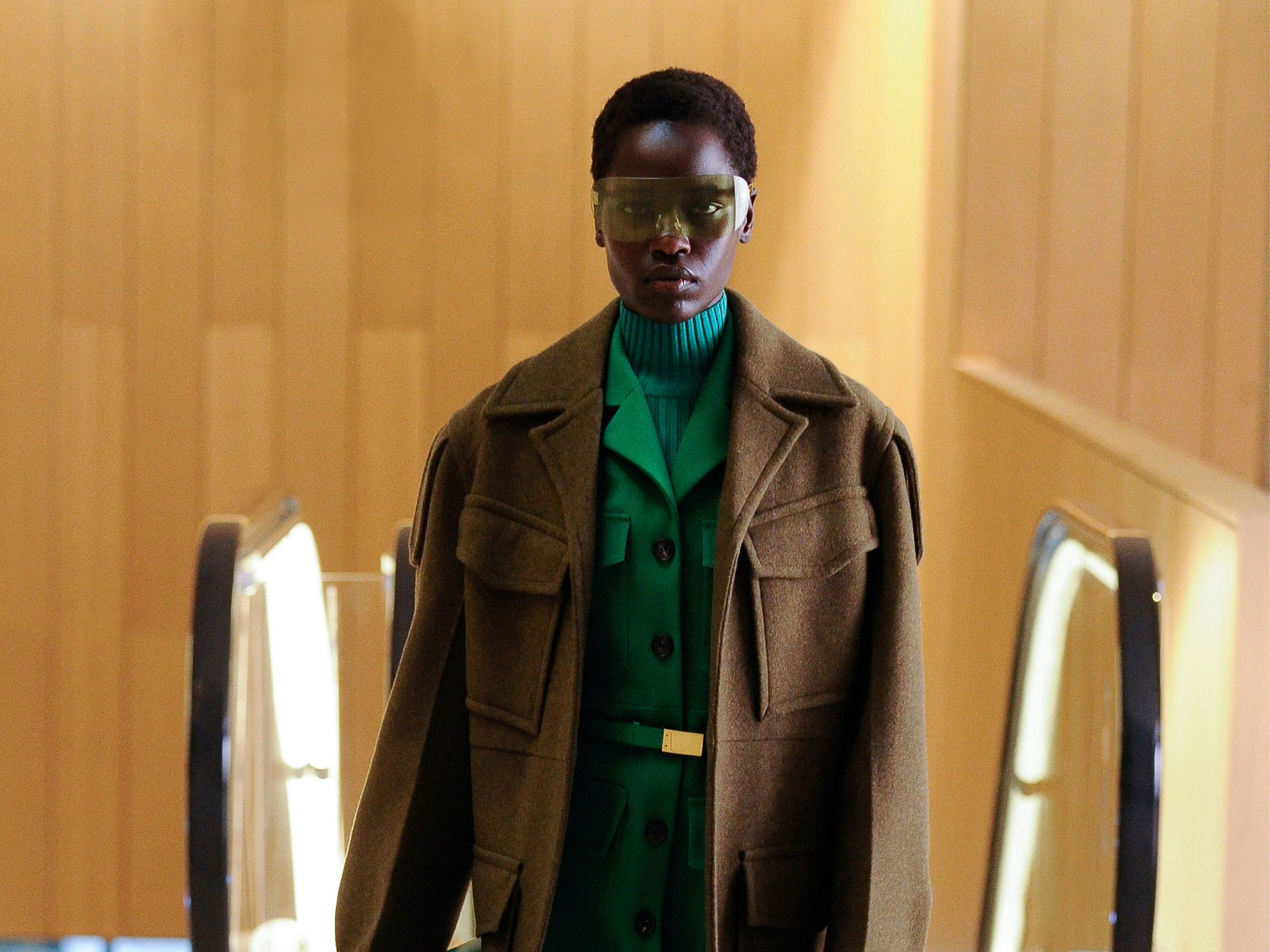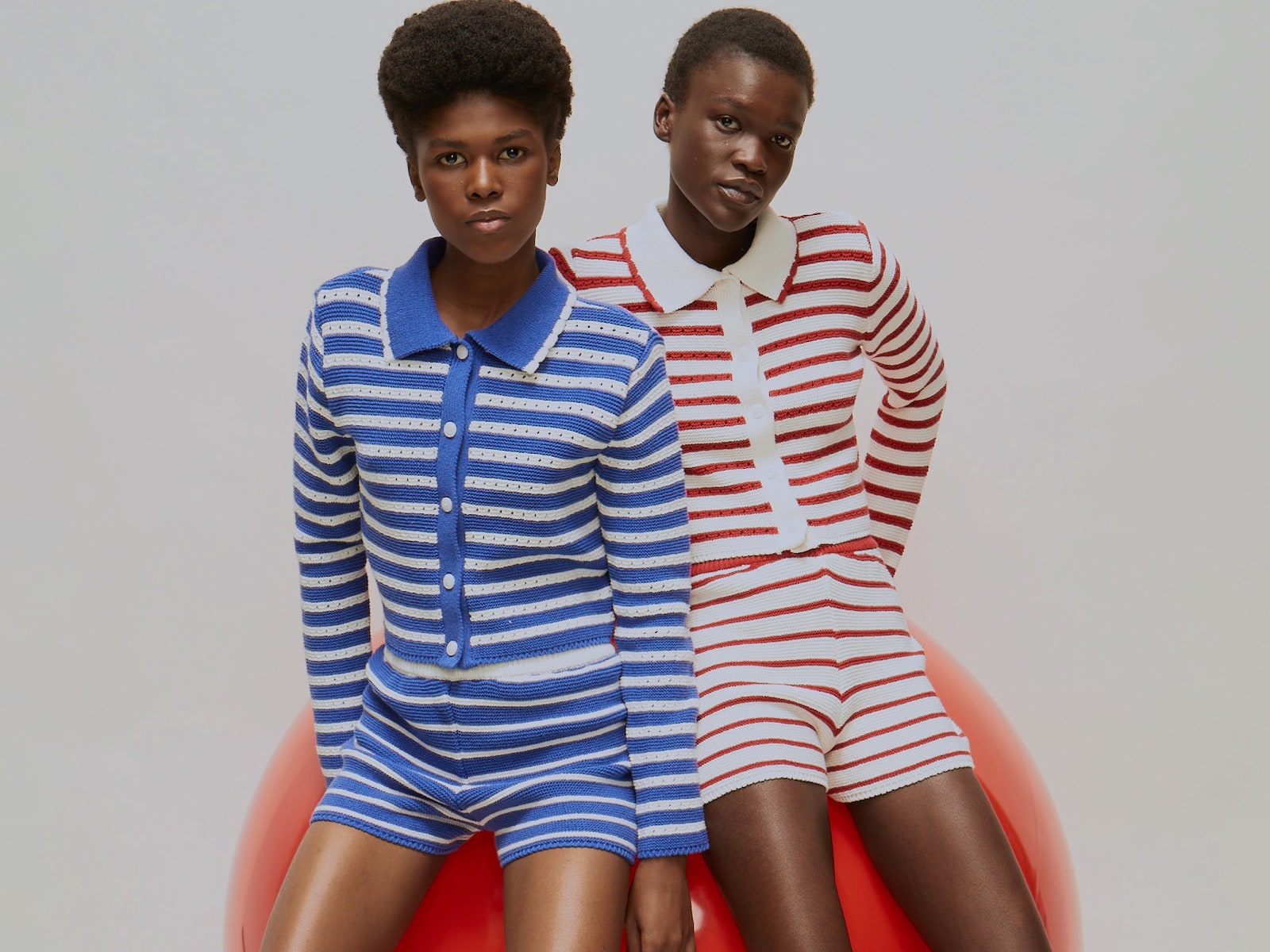
Moments before their rousing appearance together to wrap up the Tory Burch Foundation’s third Embrace Ambition summit in Manhattan yesterday, Tory Burch and the legendary Billie Jean King sat down with Vogue to chat about, yes, ambition…as well as the 50th anniversary of the historic Title IX law which revolutionized women’s sports—and their exciting new tennis collaboration.
Vogue: How did you two find each other?
Tory Burch: Through mutual friends. I’ve had a tennis group for maybe 15 years with a few friends, and Billie is an honorable member.
Tory, I heard you talk passionately a while back about watching Battle of the Sexes, the 2017 film about Billie Jean’s historic match against Bobby Riggs. What was it that resonated with you so strongly?
TB: I mean, it’s iconic—I think all young women (and men) should see that movie. Billie’s iconic—and her story is such an important part of our history.
Billie Jean King: And I’m not finished!
Tory, you’ve also been passionate for years about the notion of pay equity.
TB: I think it’s more about equality, really—and the fact that we’re talking about equality for women in 2022 is shocking; it’s pathetic. It should be a given—not some kind of favor. But of course we need actionable issues, and equal pay is one of those things.
BJK: She’s at the top of her company; she can move the needle. She can change things overnight. Of course, corporations can also influence government, and if corporations can step up, the way Marc Benioff did for Salesforce—he did it in 24 hours once somebody brought [the pay disparity] to his attention, and now he checks every company they buy—that kind of change can happen quickly. Once someone sees one CEO, one company do it, someone else follows.
We’re approaching the 50th anniversary of the passage of Title IX—37 words tucked inside of the Educational Amendments Act of 1972 that had absolutely nothing to say about athletics, but which, slowly and eventually, led to a revolution in the funding of sports for women. Young women are growing up today in a world that had already been shaped by Title IX, but Billie Jean, you’ve lived and played on both sides.
BJK: Yeah—I was pre-Title IX. I went to school and worked two jobs, and Arthur Ashe and Stan Smith—all three of us became number one in the world eventually—had full scholarships, Arthur at UCLA and Stan Smith at USC. It was my gender that kept me out of a scholarship. And in terms of those 37 words: I had the privilege of knowing Senator Birch Bayh, who was one of the people who really fought for it. The other three are my sheroes: Patsy Mink, the mother of Title IX, the first woman of color and the first Asian American woman to be elected to Congress; Representative Edith Green, who introduced the bill and fought for its passage; and Dr. Bernice Sandler, who had earlier found a way to make the 37 words in Title IX apply to education and to women’s sports—first, because Title IX outlawed discrimination in any government-funded program, which she realized included schools, and because those words included the word “activity.”
Senator Birch Bayh told me, in 2007, in Cleveland: “Billie? You know the word ‘activity’? We couldn’t make up our mind whether to leave it in or take it out.” And that’s the reason women have sports scholarships. “Thank God we left it in,” he told me. “We had no idea the effect it would have on sports for women.” He was such a feminist; he was so excited. His wife couldn’t go to the University of Virginia Law School because of her gender.
Were you aware of Title IX in real time when it passed?
BJK: Oh, yeah—I was for it before it was a thing. I knew they were working on it, and I talked to some people in Congress about it—basically because they just wanted to meet me, but I got to talk to them about it!
It’s an amazing story, really: Dr. Sandler basically gathered examples of discrimination from universities across the country and shared her research with Representative Green—stories of colleges that had a budget of $90,000 for men’s sports and $200 for women’s sports; women who weren’t paid to teach at schools because their husbands got a salary, or who were harassed out of engineering programs, or who were told they were too pretty to take difficult classes.
TB: Or too pretty to talk about money.
BJK: Right—they’re just supposed to find somebody to take care of them—to get their “Mrs.” degree. But this is why we all need to learn about history—because we learn more about ourselves, yes, but more importantly: It helps us shape the future. What I did in tennis—getting us from the amateur world to the pro world—I knew all the history of tennis; I met most of the major players from the 1930s onward (and the sport only began in the late 1800s, so I really just missed a generation or two). I met Don Budge and Jack Kramer, Alice Marble taught me…I’m one of the lucky ones. I owe them everything. But because I knew that history, I was able to make a better decision as a leader when the players needed me to lead. But I couldn’t have done it if I hadn’t known that history. And we’re making history every day—including today, with Tory’s Embrace Ambition summit.
I wanted to ask you—you could have called it a million things. Why call it “Embrace Ambition”?
TB: I called it that for a reason: I’m very determined to get rid of that stigma attached to women.
Because it’s only attached to women, right?
TB: Yes—ambitious men are celebrated. In the first major article written about me, in 2004, a journalist from The New York Times asked me if I was ambitious. I thought it was a very, very rude question, and I shied away from the word. And a very good friend of mine called me up afterward and said, “Great article—but why did you avoid calling yourself ambitious?” And it really struck a chord. She was completely right: I was buying into this negative stereotype, and ever since then I’ve been determined to erase the notion that women being ambitious is somehow negative.
To bring Title IX back for a moment, Dr. Sandler’s initial spur to pursue what became Title IX was that she had finished up her Ed.D. at the University of Maryland, in 1969, and was told she wouldn’t be hired there for a full-time teaching job because she came on “too strong for a woman.”
BJK: Yeah—we were supposed to just get our Mrs. degree and keep quiet.
Can you tell me about your collaboration?
TB: It’s still early days, but I could not be more excited about our partnership and what we can design together—
BJK: Together?!
TB: Yes—not just the clothes but the whole collaboration.
BJK: We’re playing The Billie Jean King Cup in 126 countries this year, and we’re still growing. It used to be called the Federation Cup—I was on the very first one at 19 years of age—and then the Fed Cup, and then they said they wanted to name it after me. It’s like the World Cup, but for tennis—if you want to play in the Olympics, you have to play the Billie Jean King Cup. We’re really excited—the first idea Tory talked about was making a special jacket for the winner.
TB: I look at the Masters in golf and how men have that very identifiable green jacket for the winner—women should have something like that for tennis. I’ve got a few ideas to show you, Billie…
This conversation has been edited and condensed.













